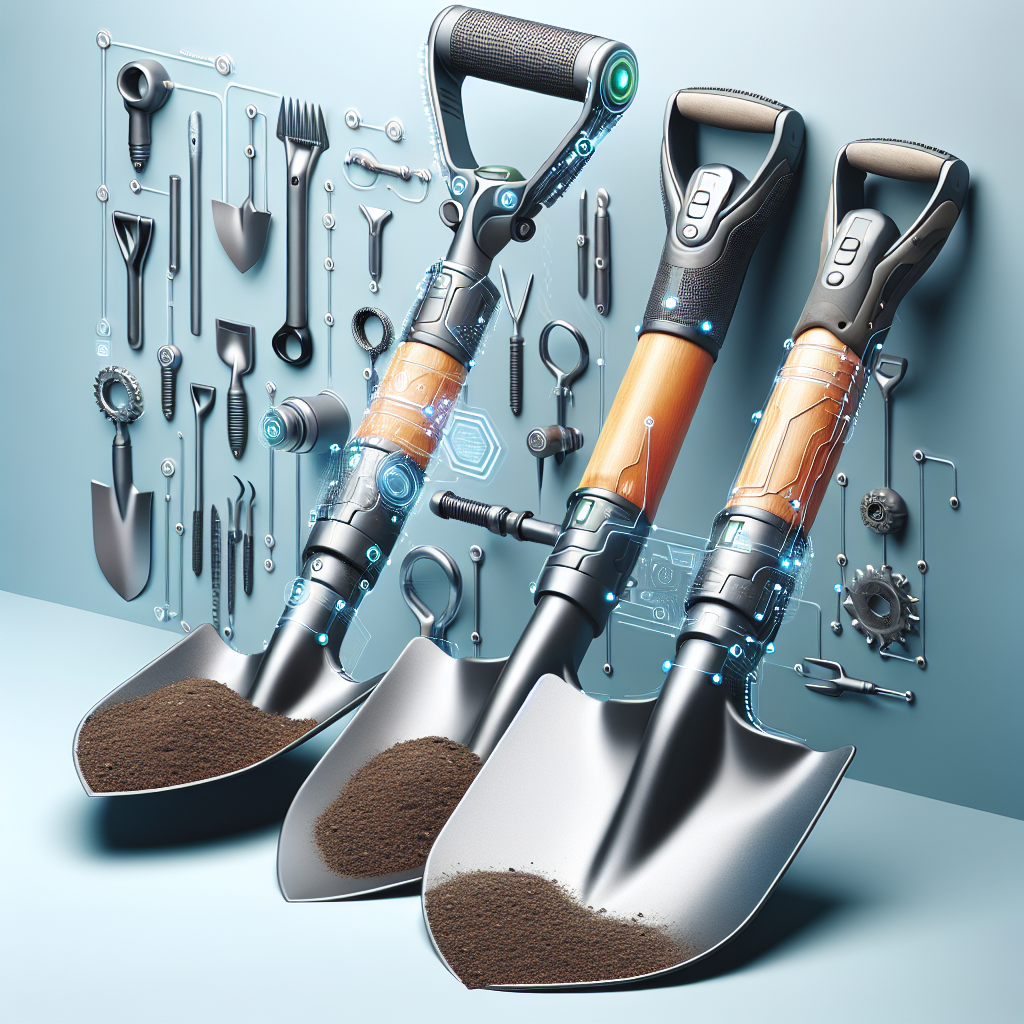The Complete Guide to Gardening Shovels: A Comprehensive Overview
Gardening shovels are essential tools for any serious gardener or landscaper. From digging holes to moving soil, these versatile instruments come in various shapes and sizes to suit different tasks. In this guide, we will delve into the world of gardening shovels, exploring the types, uses, maintenance, and more.
Understanding Gardening Shovels
Types of Gardening Shovels
Digging Shovels
Digging shovels, also known as round point shovels, are designed for tasks such as digging holes, planting trees, or moving soil. The curved blade helps penetrate the earth more efficiently.
Spading Shovels
Spading shovels, with their flat, squared-off blade, are ideal for edging, trenching, or slicing through tough roots. They offer precision and control in various gardening tasks.
Trenching Shovels
Trenching shovels feature a sharp, pointed blade that is perfect for digging narrow trenches for irrigation lines, cables, or drainage. The narrow design allows for deeper digging in confined spaces.
Scoop Shovels
Scoop shovels, often with a wide, deep blade, are designed for moving loose materials like mulch, gravel, or snow. Their shape allows for efficient scooping and transferring of materials.
Anatomy of a Gardening Shovel
A gardening shovel consists of several essential parts:
Blade
The blade is the metal or plastic part that cuts into the soil or material being moved. It comes in various shapes and sizes depending on the type of shovel.
Shaft
The shaft, or handle, provides leverage and control when using the shovel. It can be made of steel, aluminum, or fiberglass, with varying lengths to suit different tasks.
Handle
The handle is the part of the shovel that you grip. It can be made of wood, metal, or plastic and may have different shapes for ergonomic purposes.
Types of Handles: D-Grip, T-Grip, and Y-Grip
Different handle grips offer varying levels of comfort and control. D-grip handles are ideal for heavy-duty tasks, T-grips provide leverage and control, and Y-grips offer a balance between comfort and functionality.
Choosing the Right Gardening Shovel
Considerations
When selecting a gardening shovel, consider the following factors:
Task-specific requirements
Match the shovel to the task at hand to ensure efficiency and safety in the garden or landscape.
Material: Steel, Aluminum, or Fiberglass
Choose a material that suits your strength and durability requirements. Steel is sturdy but heavy, aluminum is lightweight, and fiberglass offers a balance of strength and weight.
Blade shape: Round or Square
The blade shape influences the shovel's ability to penetrate different soil types and materials. Choose a shape that aligns with your typical gardening tasks.
Handle length: Short or Long
Handle length impacts leverage and comfort. Long handles are beneficial for tasks that require more force, while short handles offer better control in tight spaces.
Case Study: The Benefits of Using a Long-Handled Shovel for Digging
Landscape expert, John Smith, emphasizes the importance of using a long-handled shovel for digging to reduce strain on the back and improve leverage.
Using Gardening Shovels Effectively
Proper Technique
Proper technique is crucial for maximizing efficiency and preventing injuries when using gardening shovels:
Correct posture and body mechanics
Maintain a straight back, bend your knees, and lift with your legs to avoid strain on your back.
Avoiding overexertion
Take breaks, stay hydrated, and know your limits to prevent muscle fatigue and injuries.
Sharpening the blade
Regularly sharpen the shovel blade to maintain its cutting edge and efficiency in the garden.
Case Study: The Role of Ergonomics in Shovel Design
According to a study by the American Society of Agricultural and Biological Engineers, ergonomic shovel design can significantly reduce the risk of musculoskeletal injuries among agricultural workers.
Maintaining Gardening Shovels
Cleaning and Storage
Proper maintenance extends the lifespan of gardening shovels:
Removing dirt and debris
Clean the shovel after each use to prevent buildup and corrosion.
Preventing rust
Dry the shovel thoroughly and store it in a dry place to prevent rust and corrosion.
Proper storage practices
Hang the shovel or store it off the ground to prevent damage and maintain its shape.
Sharpening and Repair
Regular maintenance ensures the shovel remains in top condition:
Tools needed
Gather a file, sharpening stone, and protective gloves for safe and effective sharpening.
Steps to sharpen a shovel blade
Follow a proper sharpening technique to hone the blade and restore its cutting effectiveness.
Repairing handle damage
Address any handle damage promptly to prevent accidents and prolong the shovel's lifespan.
Conclusion
Gardening shovels are indispensable tools for anyone working in the garden or on a landscaping project. Understanding the different types, choosing the right shovel for the task, using proper techniques, and maintaining your tools are vital aspects of maximizing their efficiency and lifespan.
Call to Action
Engage in the discussion and share your experiences with gardening shovels in the comments below. For more in-depth information, consult industry experts or conduct further research to enhance your gardening tool knowledge. Happy gardening!
Topics




